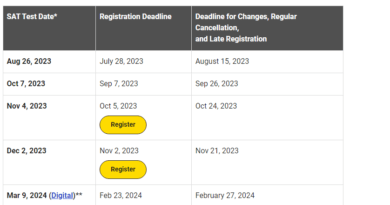How to Write College Essay: A Complete Guide
College Essay is one of the most important parts of your application. It’s your opportunity to show admissions officers who you are beyond your grades, test scores, and extracurricular activities. A compelling essay can make you stand out in a sea of applicants.
Have you ever wondered why thousands of applicants with grades similar to the average admitted students get rejected every year by top colleges? The reason is simple: they fail to convey to the admissions staff through their essay or personal statement that they are unique. Colleges look beyond your academics. Academic scores are used to refine the list of eligible candidates, but the real difference is made through the college essay.
Colleges look for uniqueness, passion for the selected field of study, leadership and communication skills, analytical abilities, and the capacity to cope with challenges and changes. All of these qualities can only be reflected through a well-crafted college essay.
In this guide, we’ll walk you through every step of the process, provide clear examples, and share tips to help you avoid common mistakes.
Step-by-Step Guide to Writing a Compelling College Essay
1. Understand the Prompt of the College Essay
Before you start writing, take the time to fully understand the essay prompt. Whether it’s a Common App prompt or a school-specific question, make sure you know exactly what’s being asked. For example:
- Prompt: “Reflect on a time when you faced a challenge. How did it shape you?”
At first glance, the prompt seems simple. You just have to describe a challenge you faced. However, what colleges are really looking for is how you overcame the challenge, what you learned from it, and how it shaped your character. So, you need to describe the challenge in detail, but also your thought processes, how you tackled it, and the lessons you learned.
If you’re responding to college essay prompts for 2025, pay attention to any new or updated questions. Understanding the prompt ensures your essay stays focused and relevant. Search for “college essay prompts 2025” and make a list of the top prompts. Then, try to answer all these prompts in your free time. Reflect on the issues you’ve faced in your life. You can seek help from search engines and AI tools, but only for understanding how to respond to these prompts. Relate the examples to your own life and identify the most difficult challenges you’ve faced or those you’ve coped well with. Write detailed responses to all these prompts, following the strategy mentioned above, and keep refining them. Take a break of 2–3 days, then revisit your responses and refine them further.
You can share your answers with your admission counselor, teacher, or seniors and receive feedback. Network with enrolled students at your dream college and share your prompts with them. Ask them what prompts they received during their application process and how they responded. You can also request samples of their prompt answers.
By following these steps, you’ll be well-prepared to answer college essay prompts with confidence.
2. Brainstorm Ideas
Your essay should reflect your unique personality and experiences. The college essay is your one-time opportunity to distinguish yourself from the pool of applicants. Take time to think about yourself—what motivates you, what your strengths are, and what sets you apart from others.
Also, mention your passion for the chosen subject area and what you’ve achieved or learned in your areas of expertise. Explain how your personality traits, values, and core strengths align with your chosen field of study. You can even take a psychometric test to learn more about yourself. There are plenty of free resources available online. Start by taking these tests and reading your full report. This will give you a better understanding of yourself.
Start by brainstorming ideas:
- What are your core values or passions?
- What experiences have shaped who you are?
- What makes your story different from others?
- Why did you choose a specific program?
- What have you learned so far, and what are your future goals?
- How do your future goals align with your chosen course and university?
For example:
- Did you overcome a personal hardship, like moving to a new country or dealing with a family illness?
- Have you had a transformative experience, like a volunteer trip or a leadership role in a club?
Write down all your ideas, even if they seem small or insignificant. Sometimes, the most mundane experiences can make for the most compelling essays.
3. Start Your College Essay with a Strong Hook
The first sentence of your essay is crucial. It should grab the reader’s attention and make them want to keep reading. Here are some ways to start a college essay:
- Anecdote: Share a brief, engaging story.
Example: “The first time I held a paintbrush, I was six years old, and my hands trembled with excitement.” - Question: Pose a thought-provoking question.
Example: “What does it mean to truly belong?” - Vivid Description: Paint a picture with words.
Example: “The smell of freshly cut grass and the sound of cheering fans filled the air as I stepped onto the soccer field for the final game of the season.”
Your hook should set the tone for the rest of the essay and give the reader a glimpse of your personality. As the saying goes, “First impression is the last impression.” Admissions staff have to go through thousands of applications and are often exhausted by the time they reach your essay. Your opening statement should encourage them to read more about you and give them a feeling of relaxation or freshness so they can concentrate on your essay. If you can grab their attention in the first few sentences, you’ll be able to convey your message effectively.
4. Tell a Story
Your essay should read like a story, with a clear beginning, middle, and end. It should not be written in a haphazard manner. The flow of sentences and paragraphs should be logical and interconnected. Use specific details to bring your experiences to life. For example:
- Instead of saying, “I love helping people,” describe a moment when you volunteered at a homeless shelter and how it impacted you.
Example: “As I handed a warm meal to a man who hadn’t eaten in days, I realized the power of small acts of kindness.”
Show, don’t tell. Let your actions and emotions speak for themselves.
5. Be Authentic
Admissions officers read thousands of essays, so authenticity is key. Don’t try to sound overly formal or write what you think they want to hear. Share your own story. Do not copy-paste from the internet or AI tools. You can seek help from available resources, but craft your own story. Be honest and let your personality shine through.
For example:
- If you’re naturally funny, include a touch of humor.
- If you’re introspective, share your thoughts and reflections.
Admissions officers want to get to know the real you, not a polished version of what you think they want.
6. Highlight Your Growth
Admissions officers want to see personal development. Reflect on how your experiences have shaped your character and aspirations. Explain what you learned and how it has influenced your goals. Mention the hardships you faced and how you remained committed to personal growth.
7. Show Passion for Your Field of Study
Demonstrate a genuine passion for your chosen field of study. Mention your likes, dislikes, and what motivates you to pursue a career in your chosen course. You can also describe a moment that shaped your career aspirations. If you’re unable to showcase a strong desire for the course of study, you might be deemed unfit for the program. Those who achieve great heights often have a strong love for their subject.
For example:
“I never thought an old typewriter could change my life until I found one at a garage sale. The clicking keys fascinated me, sparking my love for storytelling. From that moment, I knew I wanted to be a journalist, using words to inspire and inform.”
Read our detailed article on showing your passion in your essay.
8. Tailor Your Essay to the College
If you’re applying to specific schools like Ivy League universities or HBCUs, research their values and mission. It’s crucial to align your values with those of the college. Most colleges also ask why you’ve chosen their institution. To answer this question effectively, you need to thoroughly understand their values. Even if the prompt doesn’t explicitly ask, mention why you’re a great fit for their community.
For example:
- For an Ivy League school: Highlight your intellectual curiosity and passion for learning. Ivy League schools place great importance on research and innovation, especially in STEM fields.
Example: “At Harvard, I hope to join the debate team and engage in discussions that challenge my perspectives.” - For an HBCU: Emphasize your commitment to community and cultural pride.
Example: “Howard University’s rich history of empowering Black leaders inspires me to contribute to its legacy of excellence.”
9. Edit and Revise
Once you’ve written your first draft, take a break and come back to it with fresh eyes. Look for:
- Clarity: Is your message clear?
- Grammar and Spelling Errors: Use tools like Grammarly to catch mistakes.
- Repetition or Unnecessary Details: Cut anything that doesn’t add value to your story.
Ask a teacher, mentor, or family member to review your essay and provide feedback. You can also use AI tools like Grammarly, but ensure the text remains original and authentic. Most AI tools summarize and rewrite text, so be cautious while using them for refining your essay.
Clear Examples of Successful College Essays
Example 1: The “Burnt Toast” College Essay
- Topic: A student wrote about failing to bake a cake for their sibling’s birthday.
- Why It Worked:
- It was personal and relatable. The idea was unique and showed authenticity and originality.
- The student tied the experience to their resilience and growth mindset.
- They used humor and vulnerability to connect with the reader.
Excerpt:
“The smell of burnt toast filled the kitchen as I nervously waited for my first baking experiment to fail. Little did I know, that moment would teach me more about perseverance than any textbook ever could.”
Example 2: The “Grandma’s Garden” Essay
- Topic: A student described helping their grandmother tend to a garden and connected it to their passion for environmental science.
- Why It Worked:
- It used vivid imagery to bring the story to life.
- The student tied a simple activity to larger goals.
- It showed a deep connection to family and heritage.
Excerpt:
“As I knelt beside my grandmother, pulling weeds from the soil, she taught me the importance of patience and care. Those lessons stayed with me as I developed a passion for protecting the environment.”
Example 3: The “Mock Trial” Essay
- Topic: A student wrote about losing a mock trial competition but learning the value of teamwork and perseverance.
- Why It Worked:
- It highlighted growth and self-awareness.
- The student showed how they turned a failure into a learning experience.
- It demonstrated leadership and collaboration.
Excerpt:
“Losing the mock trial competition was devastating, but it taught me that success isn’t always about winning—it’s about the lessons you learn along the way.”
Common College Essay Mistakes to Avoid
- Being Too Generic: Avoid clichés like “I’ve always wanted to help people” or “I love learning.” Be specific and personal.
- Overloading with Achievements: Your resume already lists your accomplishments. Use the essay to share something new about yourself.
- Ignoring the Word Limit: Stick to the word count. Going over shows you can’t follow instructions.
- Rushing the Process: Start early and give yourself time to brainstorm, write, and revise.
Tips for Editing Your Essay
- Read It Aloud: This helps you catch awkward phrasing or run-on sentences.
- Cut the Fluff: Remove any sentences that don’t add value to your story.
- Check for Consistency: Ensure your tone and message stay consistent throughout.
- Get Feedback: Ask someone you trust to review your essay and provide constructive criticism.
How to Tailor Your Essay for Specific Schools
Ivy League Schools Essay
- Ivy League schools value creativity, innovation, and intellectual curiosity. Highlight your leadership roles, research projects, or scientific competitions you’ve participated in. Show how you’ll contribute to their academic community.
HBCUs Essay
- HBCUs focus on community development and cultural pride. Highlight your commitment to community, internships, volunteer work, or related activities.
Liberal Arts Colleges Essay
- Emphasize your interdisciplinary interests and passion for learning. Liberal arts colleges value communication skills and your readiness to work in a multidisciplinary environment.
Writing a winning college essay doesn’t have to be stressful. By following these steps, avoiding common mistakes, and staying true to yourself, you can create an essay that stands out. Remember, this is your chance to show admissions officers who you are beyond your grades and test scores.
Need inspiration? Look for college essay examples online or ask your school counselor for resources. With practice and patience, you’ll craft an essay that leaves a lasting impression.
If you found this guide helpful, share it with your friends and others to help them benefit from it too!



